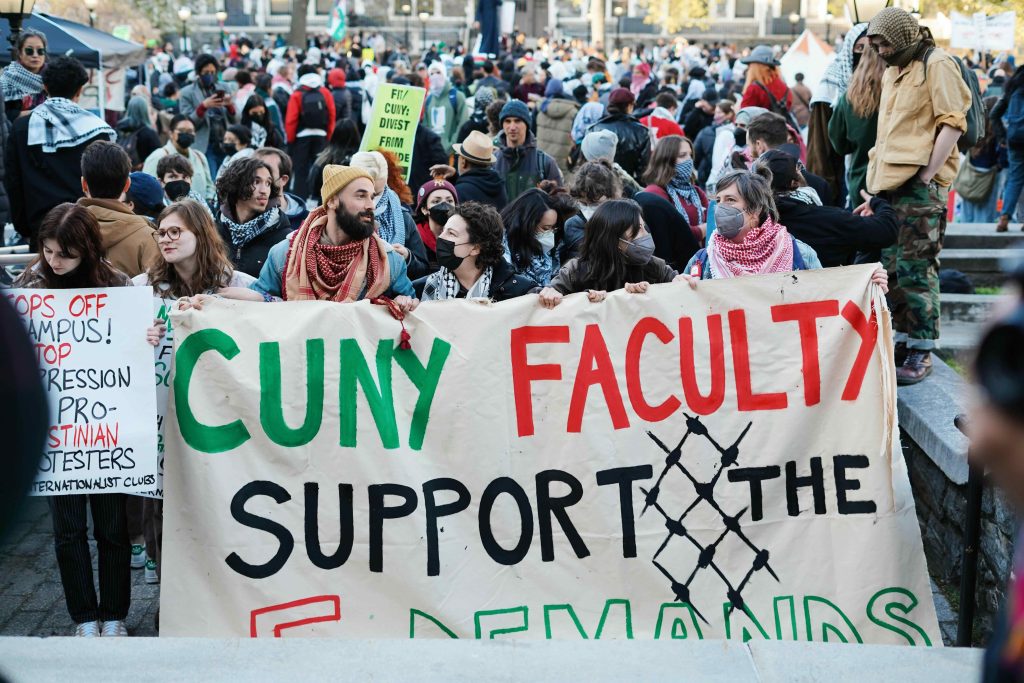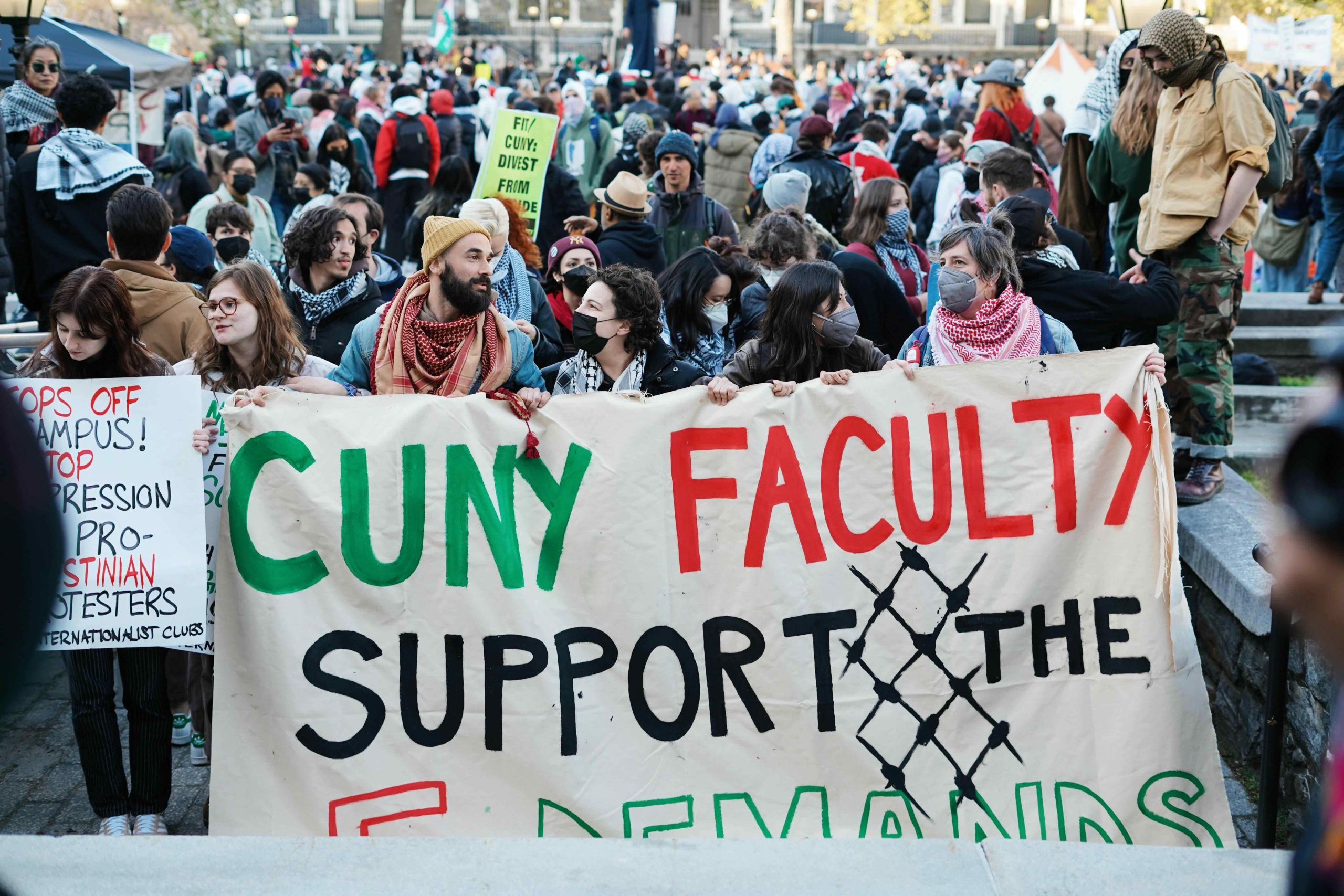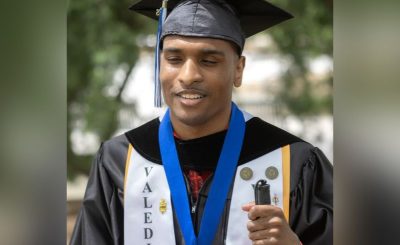
By Ethan Santos. As political debates over Trump, Palestine, and DEI intensify, students at Queensborough report mixed reactions, with many afraid to speak out or voice their opinions on various issues due to criticism and unfair treatment.
What students are afraid to comment on: abortion, mental health, and LGBTQ rights
Many students at QCC express reluctance in sharing their personal views on various issues due to a fear of being judged or ridiculed.
Denise, who is a nursing student, explained she faces is an internal conflict that almost all students face when wanting to express their opinion. “It’s very hard to say something without everybody else thinking you’re in the wrong if the group doesn’t think so,” she noted.
Rachel, a psychology student, had a similar response. She feels that our tendency to avoid complex and controversial topics has become normalized. For example, on the topic of abortion, rather than taking into consideration the health risks, different scenarios women are in, and mental preparedness for having a child, people are quick to blame women for being irresponsible or immoral, which is why some students refrain from talking about it, she explained.
Seeing that abortion is banned and restricted in multiple states, she believes that people’s willingness to share their views is also affected because of the public scrutiny it receives. “I feel like people don’t think much into it” said Rachel. “Most people just assume, ‘oh you wasn’t careful and now you’re pregnant, you don’t want to be stuck or you don’t want to have a child right now.”
Another topic that students avoid talking about is mental health, said Sin, a criminal justice student. He explains that it plays an important role in students’ lives; however, because it is heavily frowned upon and labeled as taboo, students are fearful of opening up about their mental health. According to the American Council on Education, “Of the 47 percent of students who screened positive for symptoms of anxiety or depression, fewer than half (46 percent) had received therapy or counseling in the past year.”
“I think people are scared to say anything at the risk of not being judged, but being ridiculed for it,” said Sin.
Cole, who is a psychology student, noticed hesitation towards conversations on gay marriage, abortion, or anything political among his friends. In fact, as someone gay, he was surprised to find out that a friend of his did not support gay people and tried to hide it from him.
Dr. Adam Luedtke, an Associate Professor of Social Sciences, believes that “Students here are feeling the same pressure as their peers nationwide, in terms of speaking out on a few issues in particular. Three really sensitive ones I can think of are immigration, DEI, and Palestine.”
Last fall semester, when Professor Luedtke sent a poll to his students about their views on DEI for a story a reporter at the Queensborough Communiqué, he offered the students the option to answer anonymously due to the growing fear many of them had in sharing their opinions. “This would have been unthinkable to me a year ago, that the fear around free speech would be so high that I’d actually worry about a student being legitimately scared to express their views publicly in our student newspaper,” said Professor Luedtke.
Are students from all backgrounds included in free speech conversations?
At QCC, some students think that people from all racial, ethic, and socioeconomic backgrounds have a voice and are included in free speech conversations while others disagree, arguing that marginalized people face more barriers when it comes to free speech.
Sin believes that “freedom of speech can only go so far.” He explains that certain groups of people, like immigrants, will avoid speaking up about controversial topics due to wide-spread prejudice.
“I’ve seen a lot of people here, especially immigrants, they don’t want to say too much at the risk of being arrested, and unfortunately deported because a good majority of the Queensborough community are immigrants who are here just to get their education and move forward in life.”
Cole states that one of the barriers for free speech conversations is credibility. For example, he address frequent challenges that Black women and disabled people face because they don’t receive the same level of trust and credibility compared to other people. Cole explained that it took decades before their voices were actually taken seriously by institutions and academics.
“Marginalized peoples can never express their opinions or experiences freely, unless they are in a space that will give them pushback because without pushback, the speech means nothing,” said Cole. “Is it free speech if no one hears me?”
As for Rachel, she believes that every student, regardless of their background, has a voice but also that some groups face more barriers than others. She highlighted how her upbringings in an African household stigmatized mental health which affects her comfortability to speak up on the topic at school. Her response also reveals the confliction some students face in expressing their views when they come from an environment that rejects or clashes with these views.
The Impact of Social Media
Social media also has an effect on a student’s willingness to speak openly about sensitive topics; some students avoid it due to prejudice while others find it as a source of empowerment.
Sin argues that it is significantly more challenging for students to express themselves on social media because of systematic racism happening. “People are too afraid to say anything because of the prejudice that’s kind of going on right now,” he said. Regardless of one’s political affiliation, a lot of people using social media often get attacked when they express a view that differs from others. For this reason, Sin says that people may also purposely avoid voicing certain beliefs or ideas, both on social media and in public, when it comes to getting a job.
Under Trump’s administration, the LGBTQ community are particularly vulnerable to homophobia and hate speech due to a lack of support. Rachel says that the overwhelming amount of prejudice towards the LGBTQ community on social media can cause student’s to limit what they say and how they wish to express themselves. Recently, many social media platforms have been underfired because they “failed to protect LGBTQ+ users from hate and harassment.”
Although most students focus on the negative aspects of social media, Cole feels empowered by it because it gives him the freedom to say what he wants; however, he admits that he pays less attention to online criticism which other students tend to focus more on. “I could understand if social media made people feel hesitant to share anything political on their social media, or if it empowered them…I can totally understand both ways,” said Cole.
How free speech has evolved overtime at QCC
A challenge that colleges have faced for decades is drawing the line between freedom of speech and student well-being. In college, there will always be people with views that they wish to openly express, such as the war between Israel and Palestine, that may not align or even make others uncomfortable. Another example is a student that openly supports Trump, which can lead to disagreement or discomfort by others. “It’s an impossible line to walk. There are good arguments for both, but the problem is that you can’t have 100% of both,” said Professor Luedtke.
Instead, it is important to establish mutual respect towards one another. Although there can always be improvement, QCC has actively encouraged freedom of speech and expression among its students.
QCC condemns hate speech, but not free speech. In the event of an incident involving hate speech, such as a colleague of Professor Luedtke where there was a racist zoom bombing during an online class, the school is quick to resolve the issue through combination of implementing new policies and offering students counseling and support.
Although it is challenging to voice one’s opinion in today’s age, Professor Luedtke notes that there is still a lot of students from different backgrounds that get along well. For instance, he stated that despite the political tension taking place in Israel and Palestine, or Pakistani and India, he has seen Jewish and Muslim students as well as Pakistani and Indian students peacefully interacting.
Over the course of a decade, there has also been noticeable change in treatment towards members of the LGBTQ community. “It was common to hear hate speech about gender or sexual identity from the majority of students…But over the past decade, I’ve seen a slow but steady shift at QCC,” said Professor Luedtke. Students now receive more support from QCC, allowing them to openly express themselves or voice their concerns.
Free speech is an uphill battle at many universities; however, at QCC, students are encouraged to speak freely and express themselves, so long as students respect one another. Here at QCC, “you have the most diverse student body in America mostly going about their business, going to classes, and interacting peacefully and respectfully with each other, and that is one reason I love teaching here, and wouldn’t want to be at any other campus” said Professor Luedtke.




